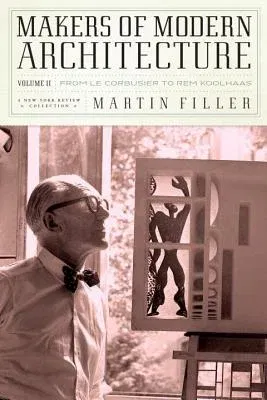In this much-anticipated sequel to his critically acclaimed Makers of
Modern Architecture (2007)
longtime New York Review of Books contributor Martin Filler--"probably
the best all-round architecture critic currently working in the United
States," according to the architectural journalist David Cohn--offers
another penetrating series of concise but authoritative studies on
leading exponents of the building art from the late nineteenth to the
early twenty-first century. Exemplifying his belief that an architect's
personality and character have a direct and profound bearing on this
most public and social of art forms, Filler's lively melding of
biographical and aesthetic perspectives gives these accessible yet
scrupulously researched interpretations a rare human immediacy.
From profiles of such universally admired masters as Frank Lloyd Wright
and Le Corbusier to emerging figures including Michael Arad, creator of
New York City's National September 11 Memorial, and the international
design collaborative Snøhetta, Filler's shifting focus remains
consistently trained on the enduring values of great architecture. His
panoramic vision encompasses the historically inspired Gilded Age
urbanism of the celebrated New York bon vivant Stanford White as well as
the expressive collages of ancient and modern elements orchestrated by
the reclusive Venetian intellectual Carlo Scarpa. The increasing role of
women in architecture is given special emphasis in this new collection,
from the pioneering work in 1920s Germany of Margarete Schütte-Lihotzky,
inventor of the standardized modern kitchen, to such innovative
contemporary practitioners as Elizabeth Diller, Kazuyo Sejima, and
Billie Tsien.

